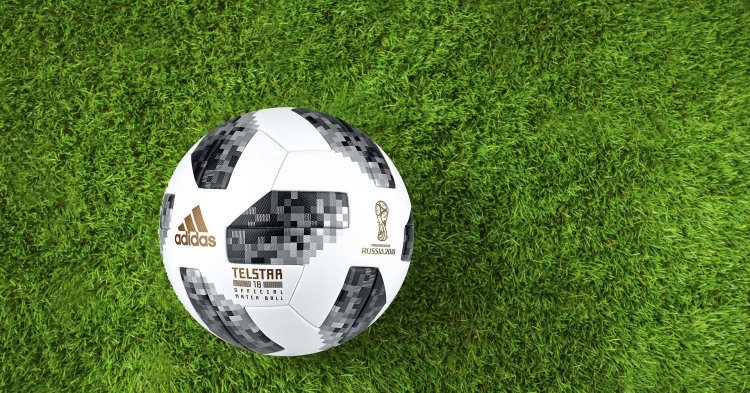The modern cost of hosting
Recent editions of mega-sporting events have aimed to offer ever-greater settings and inclusive competitions, and we have effectively been failing to fully grasp the mechanics behind the scenes - whether we be diehard supporters, peaceful spectators or disinterested compulsive-complainers throughout the event’s duration.
The 2008 Summer Olympics saw the displacement of 1.5 million residents [1], media censorship, abusive child labour of Olympic-licensed merchandise [2], Tibetan protests initiated at the Olympic torch ceremony and ending with deadly demonstrations [3], and a general repression of civil society.
Russia’s anti-gay propaganda law was implemented the year before the Sochi Winter Olympics of 2014. The Games themselves were a gateway to more labour exploitation, more local evictions, more media oppression, and environmental hazards, to name but a few. [4]
Brazil hosted the World Cup and the Games within 2 years of each other, which unleashed violent armed forces interventions and killings, jeopardised Brazilians’ freedom of expression and peaceful assemblies, yet more evictions [5], and a legacy of white elephants.
The exhaustive list of such occurrences is a long one, and it is not set to be a closed chapter of History anytime soon. Ongoing preparations for the 2022 World Cup in Qatar are successfully following these footsteps as it has been reported that 1,200 workers died by 2015, and further estimations predict the number could rise to 4,000 by the time the infrastructures are ready. [6]
Responsibility?
The domestic implementation and respect of human rights was questionable before these countries won the bid, and gradually worsened from the preparation period to the end of the event itself. The Olympic Charter stipulates that human dignity must be respected, and the International Olympic Committee formally included respect for human rights principles into its Host City Contract as of 2017. [7]
FIFA committed to respecting and promoting human rights in 2016 [8], as part of Infantino’s campaign to restore the institution’s legitimacy amongst public perception following the 2015 corruption scandal. FIFA has even set a human rights complaint system for the ongoing World Cup. The lack of consequences for fundamental rights infringements painfully point towards the complexity of global sport diplomacy. What is remembered of these events? The human rights controversies that unfold behind the curtain of preparation, or the sport moments that made history?
Putin is at the heart of his sport diplomacy strategy that involved the 2014 Winter Olympics, the 2016 Ice Hockey World Championships, the ongoing FIFA World Cup and the potential bid for the 2032 Summer Olympics. Although Putin claims over and over that sport and politics are strictly separated, the recent revelations around Russia’s state-led doping scheme beg to differ.
So far Russia is the clear winner, having received no considerable consequences - Russian athletes competed under the IOC’s flag and anthem in the Pyeongchang Games, and despite two athletes testing positive, the ban was lifted after the closing ceremony. After all, the country is only hosting the World Cup half a year later when the state doping-scheme seems well behind the headlines already. Why is this not a bigger issue, for the sport world at least? What kind of message does this relay around the world, to athletes, societies and other authoritarian states seeking to improve their image and gain might on the international stage? Here lies the very power of football; the world’s most powerful tool to unite people - former UN Secretary General Kofi Annan even suggested football is more universal than the United Nations itself. [9]
And so in the name of sport and football we let ourselves forget that the Russian Federation is one of the most-reported states at the European Court of Human Rights, amounting to a quarter of 2017’s judgements and to nearly a tenth of the over 20,000 judgements issued since 1959, even though it only joined in 1996. [10] Russian authoritarianism and human rights clampdowns haven’t been this brutal since Soviet days, as is further illustrated by the growing number of racist incidents, the implementation of homophobic laws, the decriminalisation of domestic violence, and the overall situation in Chechnya. Russian foreign policy comes under the spotlight over and over again with events such as the annexation of Crimea, the backing of the Assad dynasty in Syria, the shooting of the MH17 Malaysia Airlines flight, meddling in the US’ latest presidential elections, and the diplomatic expulsion crisis with Great Britain.
Europe, on the fence?
This should have brought us to a moral crossroads. Europe prides itself in upholding and safeguarding fundamental human rights, democracy, justice and freedom. Normative power has been the EU’s most powerful tool, notably because it has long been a widely underestimated form of power. In recent years the Union’s legitimacy has come into question, and its soft power is once again challenged under circumstances like the 2018 World Cup.
Members of the European Commission are said to visit neither Russia nor the event, as a discreet opposition. [11] Following the Salisbury attack, no British officials or Royal family members shall be attending the event. The boycott has extended to the governments of Iceland, Finland, Denmark, Sweden, and Poland. Germany and France have not taken such commitments, and it would be very uncharacteristic of Macron to shy away from taking the bull by the horns. At such a level of popularity and influence, the World Cup is indeed a diplomatic tool where opening and closing ceremonies serve as informal negotiation settings.
In the same way normative power long lacked recognition, political priorities rarely include sport diplomacy. Yet, it is in times like those we are undergoing at present that sport diplomacy truly comes to life and fulfils its potential. So how about we all start employing it strategically?


Follow the comments: |
|
